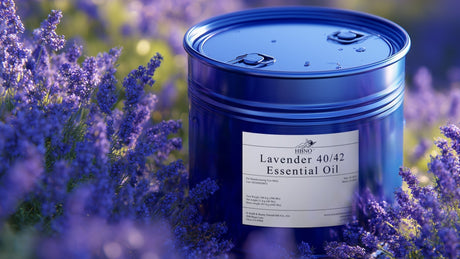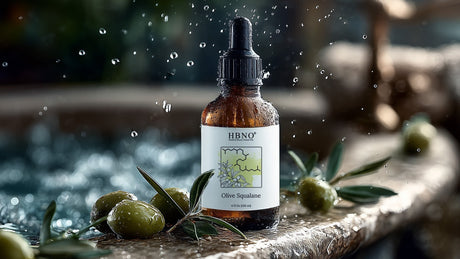Coconut oil has long been celebrated for its myriad health and beauty benefits, particularly in hair care. However, with its rising popularity, several myths have emerged, leading to confusion about its effects on hair health. One pressing question is: Can coconut oil cause hair fall? In this comprehensive guide, we'll delve into the myths and facts surrounding coconut oil, especially focusing on fractionated coconut oil, organic fractionated coconut oil, and fractionated coconut carrier oil.
Understanding Coconut Oil and Its Variants
Coconut oil is derived from the meat of mature coconuts and is rich in medium-chain fatty acids, particularly lauric acid. Its unique composition allows it to penetrate the hair shaft, providing nourishment and moisture. However, not all coconut oils are created equal.
Regular (Virgin) Coconut Oil
Virgin coconut oil is extracted from fresh coconut meat without the use of high temperatures or chemicals. This unrefined oil retains its natural aroma and flavor, as well as its full range of nutrients, including lauric acid. It's known for its moisturizing properties and is commonly used in hair and skin care routines.
Fractionated Coconut Oil
Fractionated coconut oil is a refined version of coconut oil. Through a process called fractionation, long-chain fatty acids are removed, leaving behind medium-chain triglycerides like caprylic and capric acids. This process results in an oil that remains liquid at room temperature, is odorless, and has a longer shelf life. Due to its stability and lightweight nature, it's often used as a carrier oil in aromatherapy and cosmetics. However, the removal of lauric acid means it lacks some of the antimicrobial properties found in virgin coconut oil.
Organic Fractionated Coconut Oil
Organic fractionated coconut oil undergoes the same fractionation process but is sourced from organically grown coconuts. This ensures that the coconuts are cultivated without the use of synthetic pesticides or fertilizers, appealing to those seeking natural and eco-friendly products.
Fractionated Coconut Carrier Oil
As a carrier oil, fractionated coconut oil serves as a base oil used to dilute essential oils before topical application. Its light texture and quick absorption make it ideal for massages and cosmetic formulations. While it provides excellent moisturization, it's essential to understand its role and effects on hair health.

Debunking the Myths: Can Coconut Oil Cause Hair Fall?
The concern that coconut oil might cause hair fall stems from misunderstandings and misapplications. Let's address some common myths:
Myth 1: Coconut Oil Causes Hair to Fall Out
Fact: Coconut oil itself doesn't cause hair to fall out. However, applying excessive amounts can lead to product buildup, making hair greasy and heavy. This buildup can attract dirt and clog hair follicles, potentially leading to issues like scalp irritation or dandruff, which might contribute to hair shedding. It's crucial to use coconut oil sparingly and ensure it's thoroughly washed out to prevent residue accumulation.
Myth 2: All Hair Types Benefit Equally from Coconut Oil
Fact: While coconut oil offers numerous benefits, its effects can vary based on hair type and condition.
- Fine or Oily Hair: Individuals with fine or naturally oily hair might find coconut oil too heavy, leading to limpness or an oily appearance. In such cases, fractionated coconut oil, being lighter, might be more suitable.
- Dry or Curly Hair: Those with dry, damaged, or curly hair often experience frizz due to the hair's porous nature. Coconut oil can help seal in moisture, reducing frizz and enhancing shine.
Understanding your hair type and its specific needs is essential before incorporating coconut oil into your routine.
Myth 3: Fractionated Coconut Oil Lacks Benefits Due to the Removal of Lauric Acid
Fact: It's true that fractionated coconut oil lacks lauric acid, which possesses antimicrobial properties. However, fractionated coconut oil still offers benefits, especially for those seeking a lightweight moisturizer. Its ability to remain liquid at room temperature makes it versatile for various applications, including as a carrier oil for essential oils.

Benefits of Coconut Oil for Hair
When used appropriately, coconut oil can offer several advantages:
1. Deep Conditioning
Coconut oil penetrates the hair shaft, providing deep conditioning. Applying it as a pre-wash treatment can reduce protein loss and keep hair moisturized.
2. Frizz Control
By sealing the hair cuticle, coconut oil helps prevent moisture from entering the hair shaft, reducing frizz and enhancing smoothness.
3. Scalp Health
The antimicrobial properties of virgin coconut oil can aid in maintaining a healthy scalp, potentially reducing issues like dandruff.
4. Protection from Damage
Regular use of coconut oil can reduce damage caused by environmental factors and styling practices by strengthening the hair shaft.
Potential Drawbacks and Precautions
While coconut oil offers numerous benefits, it's essential to be aware of potential drawbacks:
1. Protein Sensitivity
Some individuals' hair may become stiff or brittle with regular coconut oil use, especially if their hair is protein-sensitive. Monitoring your hair's response is crucial.
2. Allergic Reactions
Though rare, some people might experience allergic reactions to coconut oil, leading to scalp irritation or redness. Conducting a patch test before full application can help identify potential allergies.
3. Product Buildup
Overuse can lead to oily residue and product buildup, which might attract dirt and clog hair follicles. Using coconut oil in moderation and ensuring thorough cleansing can prevent this issue.

Best Practices for Using Coconut Oil in Hair Care
To maximize the benefits and minimize potential issues:
- Choose the Right Type: Select a coconut oil type that suits your hair type. For lightweight hydration, fractionated coconut oil is preferable.
- Use Moderation: Apply coconut oil sparingly to avoid buildup. A small amount goes a long way.
- Focus on the Ends: If you have oily hair, apply coconut oil mainly to the ends rather than the scalp.
- Rinse Thoroughly: Use a mild shampoo to ensure proper removal and prevent residue accumulation.
- Experiment with Blends: Mixing coconut oil with other oils like argan or jojoba oil can enhance its effectiveness for different hair types.
Conclusion
Coconut Oil, including Fractionated Coconut (MCT) Oil, Organic Fractionated Coconut (MCT) Oil, and fractionated coconut carrier oil, can be a beneficial addition to a hair care routine when used correctly. While myths suggest that coconut oil causes hair fall, the truth is that improper application or excessive use can lead to buildup and related scalp issues. Understanding your hair type and using coconut oil appropriately can help you harness its benefits without experiencing unwanted side effects. Whether you prefer virgin coconut oil for deep conditioning or fractionated coconut oil for lightweight hydration, integrating coconut oil wisely into your routine can lead to healthier, shinier hair.
Partner with the Private Label Manufacturers known for exceptional quality and customization.



